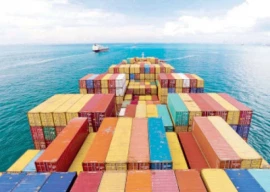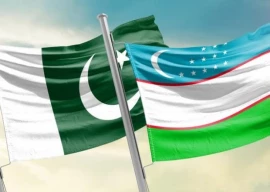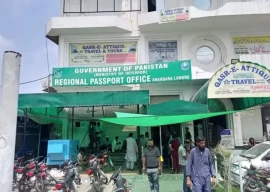
Dissemination of research through publications in prestigious journals is the essence of scientific discovery and innovation. Cutting-edge technologies in the present age are largely inspired by classic research findings communicated through publications. Rigorous research efforts to yield scientific data could earn wider appreciation and validation when published in reputed journals. It is not surprising that the currency of data is seemingly taking over petrodollars. Predictive modelling to foresee the future amid climate change and global warming is centred on data gleaned from research publications. Therefore, revisiting the status of indigenous research dissemination tools and databases is pertinent to match the pace with global advancement in science.
The Higher Education Commission (HEC) of Pakistan facilitates the provision of research materials ranging from articles and books to metadata and patents through its access agreements with world-leading scientific publishers. National Digital Library (NDL) is a dedicated database envisioned by HEC to liaise with well-known publishers including Elsevier, Oxford, Cambridge and Springer providing information across a range of disciplines and IEEE Xplore specific for engineering and Duke University Press for social sciences and humanities. Further, its database is linked with ProQuest to provide access to theses produced by graduates of the world’s leading universities. Another initiative of HEC on the same footing is the Pakistan Research Repository which deposits theses of indigenous PhD graduates of participating universities. Since its inception in 2004, NDL has strived to enrich its database to ensure free access to full-text articles otherwise protected by publisher paywalls. For this purpose, NDL registers universities from across the country through coordination with librarians to link the scholars to this centralised database. However, the communication among HEC and librarians at participating universities is mainly limited to the provision of restricted articles to scholars across a range of disciplines. This impedes the growth and advancement of NDL and the university libraries in line with international standards.
University libraries are databanks holding vast collections of physical items ranging from books and journals to audio/video records. Leading research universities offer a rich resource of classic and recent volumes of books and journals across a range of disciplines. Libraries of some of the oldest institutes like Punjab University, Lahore (PU), Govt College University Lahore (GCU) and University of Agriculture, Faisalabad (UAF) are custodians of our rich heritage and culture containing research items covering mysteries of Indus civilisation, which is rightfully regarded as one of the oldest civilisations of the world. Moreover, these classic writings offer profound insights into how we have evolved as a nation since independence through the industrial revolution into the 21st century. It would be tantamount to the erasure of our magnificent history if we grow oblivious to these records. Therefore, meticulous efforts are in place at these institutes to conserve the physical collections. However, digitisation of these records is at a snail’s pace given the paucity of resources and lack of a cohesive approach to reach a consensual framework at the national level.
Few universities (PU, NUST, and UAF) have dedicated web pages enabling their students and faculty to access digital learning resources from global databases linked with NDL using an authorised account. While most of the rest use support from NDL to offer on campus browser access to full-text articles from leading publishers of globally renowned journals. However, access to digital learning resources is not universal, and aiming for free access only resolves the issue halfway.
There is no mechanism in place at NDL or library of any leading research university in Pakistan to liaise with well-known publishers of prestigious journals to facilitate the publishing of articles at no cost to authors. Though most of the journals offer to publish free of cost with the condition of restricted access, open access is becoming the more common and sought-after option around the world. However, article processing charges associated with open access are hefty and might not be the way to go for most authors.
Universities in technologically advanced countries are adopting a uniform mechanism of hosting the participating research universities over a single database with the mandate to liaise with publishers for issues ranging from free access to publishing at no cost to authors. Research Libraries UK (RLUK), for example, is a database to which more than 10 university libraries in the UK are a member including the University of Cambridge Library. Besides intensive efforts in place for digital transformation, RLUK with support from JISC (a national initiative for digital support to research and education in the UK) has recently signed an open-access publishing agreement with Elsevier at no cost to authors of the participating universities in the UK. Likewise, the Council of Australian University Librarians facilitates open-access publishing of leading research universities of the country through free waiver agreements with well-known publishers like Cambridge University Press and Oxford University Press. On the other hand, leading research publishers offer fee discounts to researchers from developing or non-developing countries for open-access publishing. However, Pakistan is not supported either through fee waiver agreements or discounts. Therefore, it is timely to remove this bottleneck to enhance the visibility and frequency of research work by authors based in Pakistan in leading journals of the world.
HEC could adopt a mechanism matching with technologically advanced countries to upscale the research libraries in Pakistan for addressing the woes of scholars from digital access to free publishing. Coordination among research universities should be prioritised to bridge the gaps that lie in harnessing the full potential of available resources. A council of research librarians of Pakistan can be constituted to devise a framework for introducing a range of interventions. A key intervention would be to empower this council through a centralised database hosting leading research universities in the country. The database could be optimised to support coordination among universities to integrate indigenous learning resources and liaison with international publishers of reputed journals for uncapped access and publishing at no cost to authors.
Published in The Express Tribune, April 26th, 2024.
Like Opinion & Editorial on Facebook, follow @ETOpEd on Twitter to receive all updates on all our daily pieces.







































COMMENTS
Comments are moderated and generally will be posted if they are on-topic and not abusive.
For more information, please see our Comments FAQ